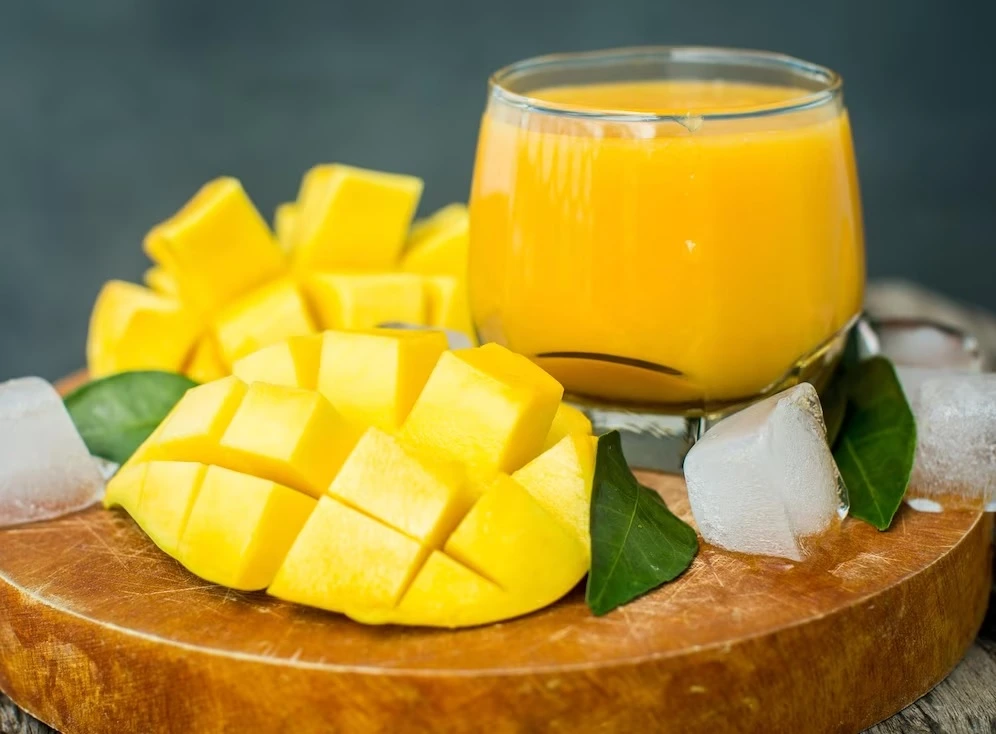
Introduction – Benefits of Mango
Mangoes, often referred to as the “king of fruits,” are not only delicious but also offer numerous health benefits. This tropical fruit is packed with essential nutrients, vitamins, and minerals that contribute to overall well-being. From supporting digestion to boosting immunity, mangoes have gained popularity for their impressive array of health benefits. In this article, we will explore the nutritional profile of mangoes and delve into the various Health Benefits of Mango.
Nutritional Profile of Mango
Mangoes are a rich source of several essential nutrients. They are abundant in vitamins such as vitamin C, vitamin A, vitamin E, and B vitamins like thiamine, riboflavin, and folate. Additionally, mangoes provide minerals like potassium, magnesium, and copper. The fruit also contains dietary fiber, which aids in digestion.
Health Benefits of Mango
Rich Source of Vitamins and Minerals
Mangoes are packed with vitamins and minerals that are vital for maintaining optimal health. The high vitamin C content in mangoes supports immune function and acts as an antioxidant, protecting the body against harmful free radicals. Vitamin A is essential for maintaining healthy vision, while vitamin E contributes to skin health and acts as an antioxidant.
Boosts Immunity
Consuming mangoes regularly can boost your immune system. The high vitamin C content helps in the production of white blood cells, which play a crucial role in fighting off infections and diseases. Mangoes also contain antioxidants that support immune function and help protect against various illnesses.
Supports Digestive Health
Mangoes are known for their beneficial effects on digestion. The fruit contains dietary fiber, which aids in maintaining a healthy digestive system. Fiber promotes regular bowel movements, preventing constipation and promoting a healthy gut. The enzymes present in mangoes, such as amylases and lactases, assist in breaking down carbohydrates and lactose, respectively.
Enhances Skin Health
Mangoes are a natural way to promote healthy skin. The fruit is rich in vitamin C, which aids in collagen production, a protein that helps maintain skin elasticity and reduces the appearance of wrinkles. The antioxidants found in mangoes also protect the skin from damage caused by free radicals, keeping it healthy and youthful.
Promotes Eye Health
The high levels of vitamin A and other antioxidants in mangoes contribute to good eye health. Vitamin A plays a crucial role in maintaining clear vision, preventing night blindness, and reducing the risk of age-related macular degeneration, a condition that can lead to vision loss in older adults.
Aids Weight Management
Incorporating mangoes into a balanced diet can support weight management. Mangoes are low in calories and rich in fiber, which helps keep you feeling full for longer. The fruit’s natural sweetness can also satisfy cravings for sugary snacks, making it a healthier alternative.
May Reduce the Risk of Certain Cancers
Mangoes contain several compounds, such as quercetin, astragalin, and gallic acid, that have been studied for their potential anticancer effects. These compounds possess antioxidant properties and may help inhibit the growth of cancer cells. While further research is needed, incorporating mangoes into a balanced diet may contribute to reducing the risk of certain cancers.
Provides Antioxidant Protection
Mangoes are a rich source of antioxidants, including vitamin C, vitamin E, and beta-carotene. Antioxidants help protect the body’s cells from damage caused by free radicals, which are unstable molecules that can lead to chronic diseases and premature aging. Including mangoes in your diet can boost your antioxidant intake and support overall well-being.
Supports Heart Health
Mangoes may have benefits for heart health due to their fiber and potassium content. Dietary fiber helps lower cholesterol levels, while potassium is essential for maintaining healthy blood pressure. Additionally, mangoes contain antioxidants that help reduce oxidative stress and inflammation, two factors associated with an increased risk of heart disease.
Helps Fight Anemia
Anemia is a condition characterized by a deficiency of red blood cells or hemoglobin in the blood. Mangoes are a good source of iron, a mineral necessary for the production of red blood cells. Consuming mangoes can help prevent or alleviate iron deficiency anemia and its associated symptoms, such as fatigue and weakness.
Ways to Incorporate Mango in Your Diet

Adding mangoes to your diet is easy and delicious. Here are a few ideas on how to include mangoes in your meals:
Fresh Mango Slices: Enjoy ripe mangoes by simply slicing them and eating them as a healthy snack.
Mango Smoothies: Blend ripe mangoes with your favorite fruits and yogurt for a refreshing and nutritious smoothie.
Salsa: Combine diced mangoes with tomatoes, onions, jalapenos, cilantro, lime juice, and a pinch of salt for a vibrant salsa to enjoy with chips or as a topping for grilled chicken or fish.
Mango Chutney: Prepare a tangy and spicy mango chutney by cooking diced mangoes with spices like ginger, garlic, chili powder, and vinegar. It pairs well with Indian dishes or as a condiment for sandwiches and wraps.
Mango Sorbet: Freeze mango puree and enjoy a guilt-free, refreshing dessert.
Conclusion- Benefits of Mango
Mangoes are not only a delicious tropical fruit but also a nutritional powerhouse. They provide an array of health benefits, including supporting digestion, boosting immunity, enhancing skin health, promoting eye health, and aiding weight management. With their rich nutritional profile and versatility in various dishes, mangoes are a valuable addition to a healthy diet.
FAQs on Benefits of Mango
1. Can mangoes help with weight loss? While mangoes are relatively low in calories and high in fiber, they can be a part of a balanced weight loss diet. However, portion control is essential as excessive consumption can contribute to calorie intake.
2. Are mangoes good for diabetes? Mangoes do contain natural sugars and carbohydrates, so people with diabetes should consume them in moderation and be mindful of their overall carbohydrate intake. It’s advisable to consult a healthcare professional or a registered dietitian for personalized guidance.
3. How many calories does a mango have? The calorie content of a mango can vary depending on its size and variety. On average, a medium-sized mango contains approximately 150-200 calories.
4. Can mangoes cause allergies? While rare, some individuals may be allergic to mangoes. Allergic reactions to mangoes can range from mild to severe, including itching, rash, or even anaphylaxis. If you experience any adverse reactions after consuming mangoes, it is recommended to seek medical attention.
5. Are mangoes suitable for a vegan diet? Yes, mangoes are suitable for a vegan diet as they are derived from plants and do not contain any animal products.
LIKE WHAT YOU’RE READING?
CHECK OUT SOME OF OUR OTHER GREAT CONTENT HERE:
- HOW TO MAINTAIN HEALTHY LIFESTYLE?
- 10 TIPS ON HEALTHY LIFESTYLE
- BEST MOTIVATIONAL QUOTE FOR SUCCESS IN LIFE
- HOW TO REDUCE FUEL CONSUMPTION?
- LEARN THE ART OF TIME MANAGEMENT
- DEVELOPING EMOTIONAL INTELLIGENCE
- LEARN PROBLEM SOLVING SKILLS
- BEST BOOKS ABOUT SWAMI VIVEKANANDA
- 20 BEST QUOTES FOR A HEALTHY LIFESTYLE
- WHAT ARE BENEFITS OF RUNNING?
- WHAT ARE THE BENEFITS OF GREEN TEA?
- BENEFITS OF FENUGREEK FOR WOMEN: A COMPREHENSIVE GUIDE




robaxin 500mg otc